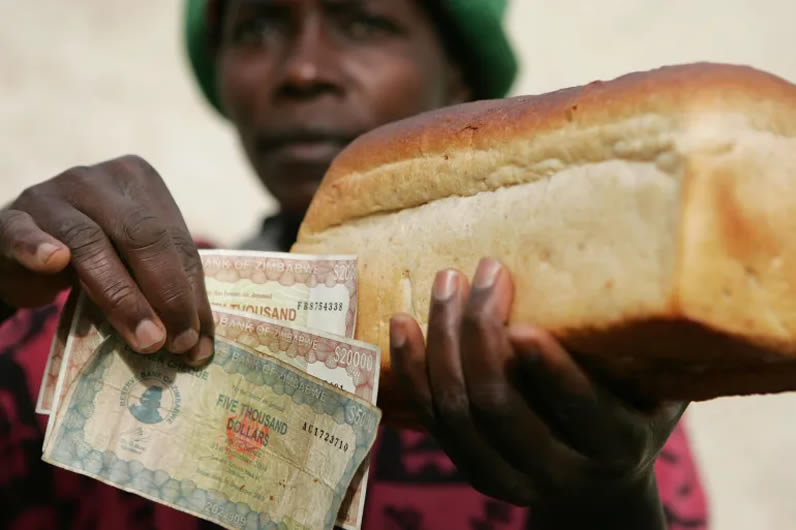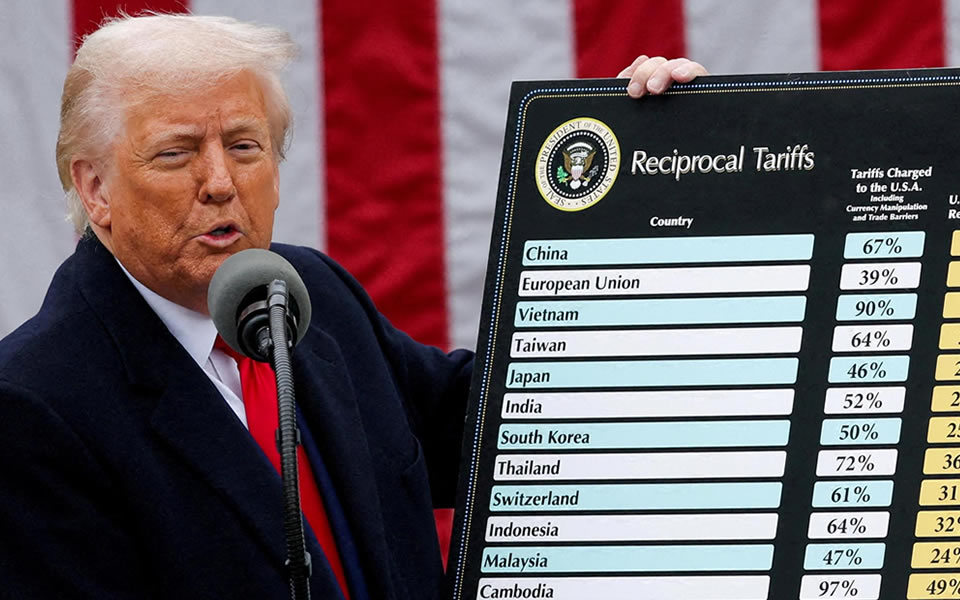
Senegal: Challenges Ahead for President Diomaye Faye
May 2, 2024
Attempted Coup in the DRC: Overview & Implications
May 24, 2024ZiG: ZIMBABWE'S NEW GOLD-BACKED CURRENCY
Opportunities & Challenges
Analyst: Moreblessing Takura Madzikatire
What You Should Know
-
Introduction of ZiG: Zimbabwe has introduced a new currency, ZiG, to stabilise its economy and combat high inflation. The currency is backed by gold and foreign reserves, making it a viable alternative to the volatile Zimbabwean dollar (ZWL).
-
Public Scepticism & Resistance: Despite optimistic projections about ZiG's impact on the economy, there is significant public scepticism and resistance from various sectors. The effective adoption of the new currency faces challenges from entrenched black market activities and the ongoing preference for foreign currencies.
-
Economic Growth Projections: Introducing a new currency will likely boost economic growth. This will unlikely immediately translate into improved living standards as growth will likely be primarily concentrated in sectors that do not broadly distribute wealth.
-
International Dynamics: International dynamics will possibly influence the success of Zimbabwe's new currency, with shifting relations between the US, EU, and regional powers like South Africa possibly impacting economic policies and investment.
-
Long-Term Success Factors: The long-term success of the ZiG very likely hinges on the government's ability to implement inclusive economic policies, ensure transparency, and maintain strict monetary controls.
The Launch of ZiG
In a significant monetary overhaul, Zimbabwe's central bank launched a new currency, the ZiG (Zimbabwe Gold), anchored by gold reserves and a basket of foreign currencies. This move is part of a broader attempt by the Reserve Bank of Zimbabwe to stabilise the nation's economy, which has been plagued by high inflation and currency devaluation. The new currency aims to restore confidence in the national financial system by ensuring that the currency is backed by tangible assets like gold, other precious minerals, and foreign currency reserves.

The introduction of ZiG took place just two months after US President Joe Biden signed an Executive Order to terminate the national emergency concerning Zimbabwe and revoke the orders that authorised Zimbabwe-specific sanctions. This move immediately eliminated the economic sanctions administered by the Office of Foreign Assets Control (OFAC) regarding the Zimbabwe sanctions program. OFAC promptly issued a final rule removing the Zimbabwe Sanctions Regulations, 31 CFR part 541, from the Code of Federal Regulations.
The introduction of ZiG represents a significant step by the Zimbabwean government to address its economic woes, especially after more than two decades of economic sanctions. The success of this initiative remains uncertain amidst continued public scepticism and the challenges posed by black market activities, currency volatility, and the El Nino drought, which has plagued Southern Africa. The coming months will be critical in assessing whether this new monetary policy can achieve the desired stability and restore confidence in Zimbabwe's financial system.
Background

Zimbabwe's monetary policy and currency history are marked by significant volatility and drastic shifts, largely reflective of its broader economic and political challenges. Following independence in 1980, Zimbabwe initially maintained a relatively stable economy. The situation deteriorated rapidly by the late 1990s and early 2000s due to sanctions, land reform policies that disrupted the agriculture sector, hyperinflation, and political instability. The country's currency issues peaked in 2008 when inflation forced the government to abandon the ZWL.
The inflation rate reached 500 billion percent at its worst, rendering the ZWL virtually worthless and necessitating transactions in foreign currencies like the US dollar and South African rand. In 2019, the government reintroduced the ZWL to restore monetary sovereignty, but this was met with skepticism and resulted in renewed inflation and economic difficulties, leading to the currency's rapid depreciation.
The introduction of the new gold-backed currency, ZiG, is the latest in a series of measures aimed at economic recovery. This move is intended to provide a stable and reliable exchange medium resistant to inflation. The backing by gold and foreign currencies aims to instil confidence among citizens and international investors, given the volatile history of the ZWL. The success of ZiG is contingent on broader economic reforms and the restoration of political stability. For Zimbabwe to recover economically, it will require comprehensive policy changes that address corruption, improve governance, attract investment, and stimulate growth in critical sectors like agriculture and mining. The government's ability to maintain discipline in its monetary policy, particularly in avoiding overprinting money, will also be critical in ensuring the new currency's credibility and longevity.
Public Response
Skepticism &Concerns
The introduction of ZiG has been met with skepticism from various quarters, including opposition groups and financial analysts. Critics have expressed concerns about the sufficiency of the gold reserves to back the new currency and protect it against external shocks, such as volatility in gold prices. Fears persist that these reserves might not be enough to foster long-term confidence, especially given Zimbabwe's history of financial instability.
Public Hesitance
This scepticism is mirrored by a notable hesitance among the general public to fully embrace the new ZiG. Many individuals and businesses prefer transactions in more stable foreign currencies, primarily the US dollar, which accounts for approximately 85% of market transactions. This preference highlights the ongoing lack of public confidence in local monetary policies and hinders the complete adoption of ZiG.
Exchange Rate Fluctuations
Since its launch, ZiG has experienced notable fluctuations in the exchange rate, especially against major currencies like the US dollar. The significant divergence between official exchange rates and black market rates indicates persistent challenges in stabilising the currency. The thriving black market, driven by the disparity between official and actual market valuations, continues to undermine efforts to normalise the economic environment.
Analysis & Forecast
Impact of Sanctions Removal on Economic Recovery & Currency Stability
The removal of international sanctions against Zimbabwe will likely have a significant positive impact on the country's economic recovery and ZiG’s stability as sanctions have historically limited Zimbabwe's access to international markets, foreign capital, loans and development aid, stifling economic growth and exacerbating financial crises. With these sanctions lifted, Zimbabwe will likely experience improved foreign direct investment, banking correspondence relations, access to loans, increased trade opportunities, and better integration into the global economy. These developments will likely support the new currency by enhancing overall economic stability and generating more robust foreign exchange reserves, which are critical for backing ZiG.
International Support & Strategic Realignment
The introduction of the ZiG is likely to gain international support from key players, particularly the US and the EU, as recent changes in the global narrative surrounding Zimbabwe suggest a broader strategic realignment. The lifting of sanctions likely signifies that the country is now viewed as a potential investment destination in critical sectors such as agriculture, mining, telecommunications, and energy. Zimbabwe likely presents a viable alternative partner for the US amid uncertainties regarding the outcome of the South African election and possible sanctions if the African National Congress (ANC) retains its position. There will likely be enhanced economic diplomacy between Zimbabwe and major Western powers, likely including direct investment in the sectors with growth potential and possibly technical assistance in financial regulation and monetary stabilisation. Zimbabwe’s ability to maintain political stability and transparency, particularly in managing the new currency and its economic reforms, will very likely be critical in sustaining international confidence and support.
Inflation Control & Economic Stability
ZiG’s introduction will likely impact the inflation rate, which was reported at 55.3% as of March 31, 2024. Its impact on inflation will likely depend on the public’s response and businesses adopting ZiG and effectively replacing transactions previously dominated by the unstable and rapidly depreciating ZWL currency. Avoiding excessive printing of the new currency and managing money supply growth strictly in line with increases in gold and foreign currency reserves will likely curb inflationary pressures. Stabilising the currency and the economy will likely increase investment and economic activity, improving the overall economic environment and potentially reducing inflation. If the government can ensure a smooth transition and foster trust in the new currency, it is more likely that inflation will stabilise or decrease. The success of ZiG in reducing inflation will very likely hinge on sustained economic policies and ongoing confidence in the currency's stability and value.
Macroeconomic Changes & Living Standards
ZiG, is very likely to bring about significant macroeconomic changes in the medium to long term. The correlation between these changes and immediate improvements in living standards for the majority of Zimbabweans will unlikely be straightforward. The gap between economic indicators and the everyday economic realities individuals face will likely lead to public scepticism about the effectiveness of such monetary reforms. Although the government will likely generate more revenue through enhancements in the macroeconomic environment, it is unlikely that these funds will be instantly allocated to public services like healthcare, education, and infrastructure.
Challenges from the Black Market
The new currency will likely face challenges from the black market and traders who benefited immensely during the ZWL dollar era. With the introduction of ZiG, which aims to be more stable through gold backing and foreign reserves, it is likely that elements benefiting from the black market operations will resist the adoption of the new currency. Sabotage will likely be through a continued preference for transactions in foreign currencies, especially the US dollar, to hedge against potential instability in ZiG. The spread of misinformation about the stability and value of ZiG by critics and the opposition will likely deter its acceptance among the populace. Hoarding of foreign currencies will likely exacerbate the scarcity of these currencies in the official market and drive people towards the black market for their needs. Without proper economic governance and enforcement of regulations stipulated in the monetary policy, the Reserve Bank of Zimbabwe will likely have a significant task of earning public confidence and eliminating the black market.
Political Polarisation & Public Acceptance
The high level of political polarisation in Zimbabwe will likely pose significant challenges in obtaining public acceptance of ZIG. Prominent opposition figures, including Tendai Biti and David Coltart, have been vocal in their scepticism towards the new currency, alleging the ruling party, ZANU PF, of introducing ZiG to consolidate economic control and potentially facilitate corrupt practices. These allegations will likely exacerbate existing mistrust among the public, especially those disillusioned with the ruling party's policies and governance style. The claims made by opposition leaders will likely profoundly impact public perception, particularly as these leaders are perceived as credible alternatives to the current government. The government will likely face significant public relations challenges, requiring it to create demand for ZiG and ensure that the market performance will override criticism. The failure to create demand for ZiG will likely lead to reduced currency usage and reliance on alternative currencies, including foreign monies in the informal economy, rendering the counternarratives valid.



